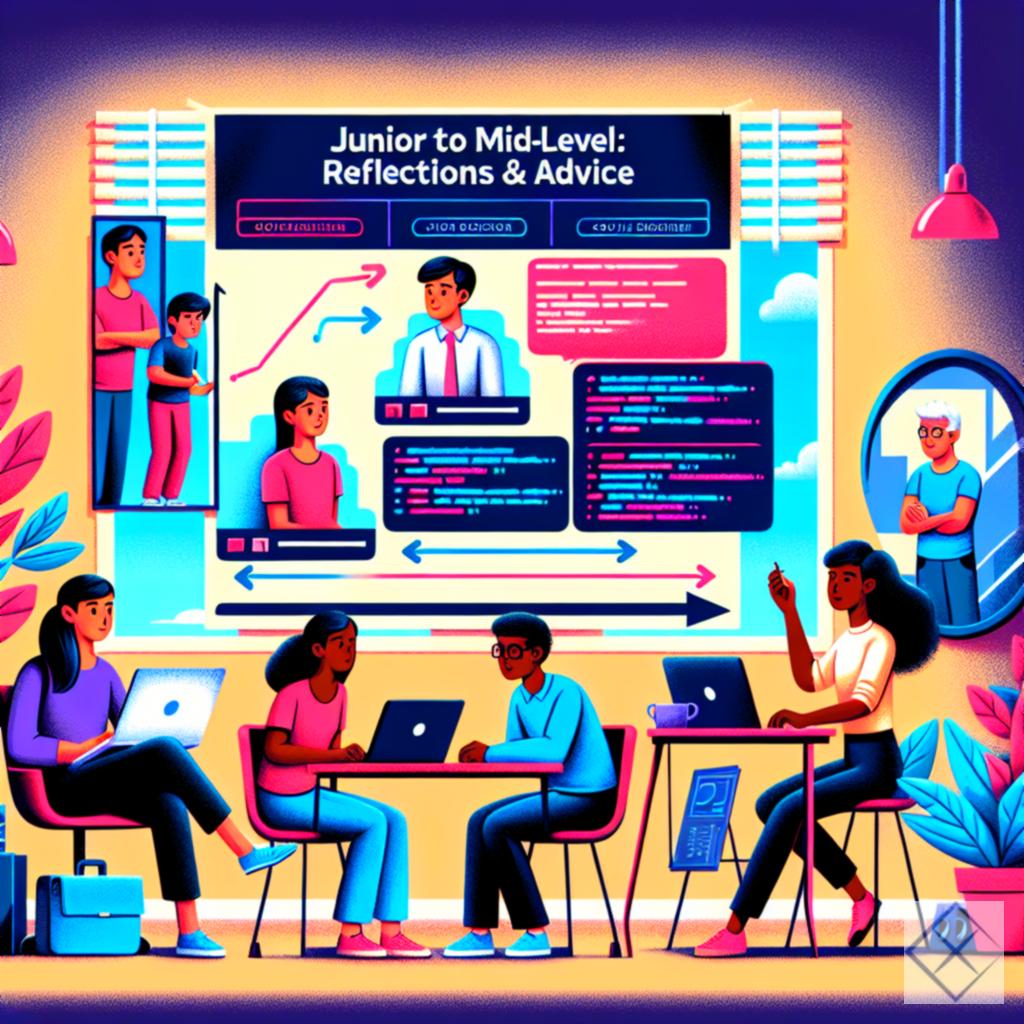Junior to Mid-level: Reflections & Advice

Junior to Mid-level: Reflections & Advice
Hi everyone! I’ve been a software engineer for almost four years now, and I’ve reached a stage in my career where I can better identify the distinctions between junior and mid-level behaviors. In this post, I want to share my reflections in hopes that they may benefit your career journey as well.
Comfort Zone
As a junior developer, I often found myself hesitating to tackle tasks outside my comfort zone. This is a common phenomenon, not just among juniors but even among seasoned professionals. I would come up with excuses to redirect tasks to others, citing reasons like “It’s outside my domain,” “It’s beyond my expertise,” or “I’m too busy with other tasks.” At that moment, it felt like a viable strategy—after all, “You can’t fail if you don’t try,” right?
However, I soon realized that this approach was detrimental to my growth. Avoiding challenges meant I was learning at a painfully slow pace, and my confidence was waning. The irony is that pushing beyond my comfort zone early on would have only expanded it. I’ve come to understand that growth is a continuous process, not a finite destination. As I continue my journey, I remind myself to embrace challenges and seek out opportunities for learning.
Accountability & Ownership
Have you ever experienced a frustrating exchange like this in your workplace?
Person A: “Why did you implement this change like this?”
Person B: “Because X person told me to.”
Person A: “And why’s that?”
Person B: “I was just following X’s instructions. I don’t know.”
I’m not proud to admit that I used to respond like this. By deferring critical thinking to others, I became a mere middleman—relaying information I didn’t fully understand or believe in. This behavior not only undermined my credibility but also affected how others perceived me. Development is not just about writing code; it’s about making informed decisions and taking ownership of those choices. My advice? Always strive to understand the “why” behind your work before executing it.
Meticulousness & Integrity
Building trust as a developer involves being meticulous in your work. I can’t stress enough how vital it is to double and triple-check your outputs. I’ve seen colleagues make subtle but significant mistakes during code reviews—not due to lack of ability, but rather a lapse in diligence.
It doesn’t stop at code; it extends to the accuracy of information. You should never confidently assert something unless you have verified it. Similarly, avoid vague expressions like, “I sort of think it might be this way.” Instead, aim to present well-researched solutions and actionable insights. This commitment to integrity shows your colleagues that you are reliable and serious about your work.
Memorable Contributions
One area I recognize I need to improve on is making memorable contributions in discussions. I often find myself hesitant to speak up in meetings, fearing that I might slow down the conversation or disrupt the flow. This fear can stem from a lack of confidence or feeling disconnected from the topic.
However, I’ve come to realize that every meeting is an opportunity to learn and contribute. By voicing my thoughts, even if they seem less competent, I can clarify my understanding and strengthen my presence among colleagues. Engaging in discussions helps build stronger relationships and increases my chances of career advancement.
Additional Insights from the Community
In reflecting on my journey, I’ve gathered valuable insights from peers who are navigating similar paths:
-
Be Pleasant to Work With: Soft skills matter. Building positive relationships can lead to trust and new opportunities. Your interpersonal skills significantly impact your career trajectory.
-
Pick Your Battles: Not every issue is worth your energy. Use your judgment wisely to focus on what truly matters, which helps you maximize your influence and time.
-
Patience is Key: As noted by some experienced colleagues, patience is an invaluable trait. The ability to endure long meetings and guide juniors, even through repetitive discussions, fosters a collaborative environment and aids knowledge transfer.
-
Initiative Matters: If you don’t take initiative, you shouldn’t expect recognition or raises. Showcasing your willingness to step up sets you apart from your peers.
Conclusion
I hope these reflections and insights resonate with you, especially if you feel your soft skills need improvement. Remember, growth is a journey, and every small step contributes to your overall development. Celebrate how far you’ve come, and keep pushing forward. Thank you for reading!
Feel free to share your thoughts in the comments below! What experiences have shaped your transition from junior to mid-level? How have you navigated the challenges along the way?